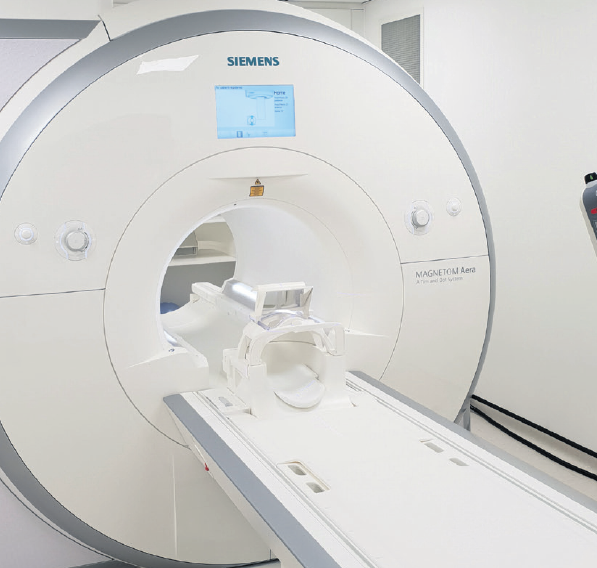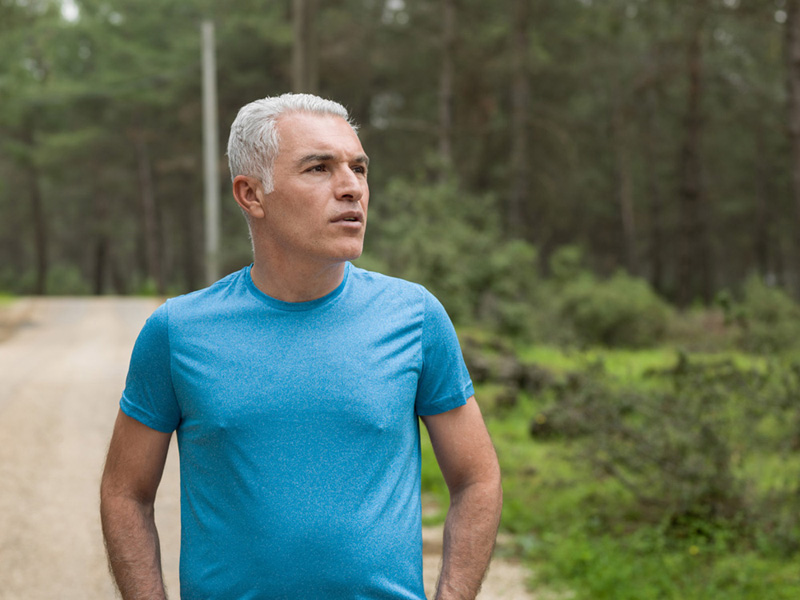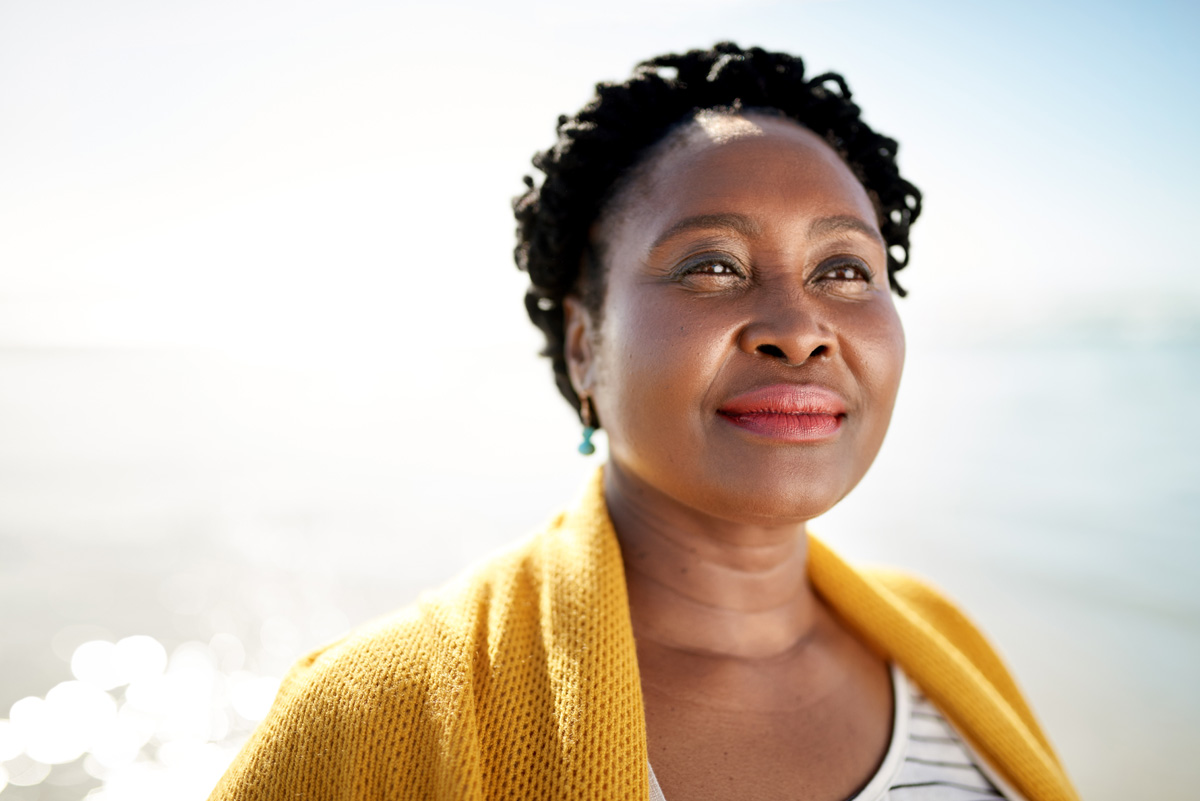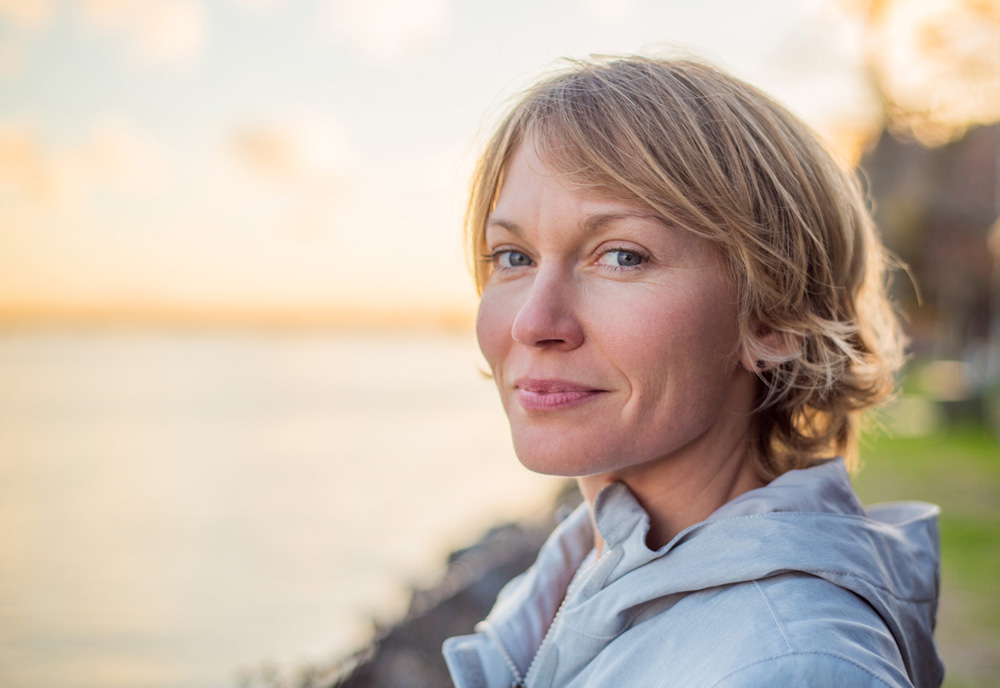- Patients
- Exploring cancer care
- Conditions we treat
- Melanoma treatment
Introduction
Melanoma treatment at GenesisCare
We are specialists in the latest techniques for diagnosing and treating all types of cancer, including melanoma. We have teams of highly trained cancer specialists who are experts in this type of cancer. They work together to evaluate the newest, evidence-based approaches so we can offer these to every patient needing treatment – without delay.

Treatment overview
Chapter 1
Treatment overview
Melanoma is cancer that grows in skin cells called melanocytes and although it is not the most common type of skin cancer in the UK, it can be serious and spread to other organs in your body. Melanoma can develop from existing moles, or as a new mole or patch of abnormal skin. This may happen anywhere on the body, but it more commonly starts in areas that are often exposed to the sun. According to Cancer Research UK, there are around 16,200 new cases of melanoma in the UK each year, but early diagnosis and treatment can mean an increased chance of positive results.
The most common type of skin cancer in the UK is a different type called non-melanoma skin cancer (NMSC), which is mostly not life-threatening. These cancers grow in different skin cells in the top layer of the skin called the epidermis. Find out more about non-melanoma skin cancer.
We are the UK’s leading specialist independent cancer care provider. By choosing us, you can be reassured that your treatment will be managed by a team of specialists working together, with you, to decide the best, personalised care plan for your diagnosis.
We offer you first-class treatments managed by a team of specialists in melanoma skin cancer. To help ensure the best outcomes are achieved for you, we combine your treatment with personalised integrative cancer care which is proven to improve outcomes. This includes a programme of exercise medicine and access to a wellbeing expert and holistic therapies such as counselling, acupuncture, massage and reflexology through our unique partnership with the Penny Brohn UK charity.
It is our commitment to offer world-class cancer care to all of our patients to achieve the best outcomes possible.
How is melanoma treated?
There are a number of treatment options available for melanoma, such as:
- Radiotherapy – although not often used, you may have radiotherapy where high-energy radiation beams which are targeted at the cancer cells
- Surgery – removal of the part of the skin which contains the cancer
- Targeted therapy – a specialised group of drugs that attack or block certain processes in the cancer cells
- Immunotherapy – drugs that help your body’s immune system recognise and fight the cancer
Contact us
If you have any questions you’d like to ask or to find out more about melanoma skin cancer treatments, please don’t hesitate to get in touch with us. We’re here to help.
Diagnostics
Chapter 2
Diagnostics
Diagnosing melanoma
At GenesisCare we diagnose and treat a wide range of cancers, and we understand that this can be a very worrying time. Our diagnostic services are world-class, and our commitment is to give you the answers you need, as quickly as possible. It’s important to remember that symptoms can often be caused by other conditions and not always melanoma. But, whatever your diagnosis, we can make sure you get the expert care you need and without delay.
If you’re concerned about melanoma symptoms, we offer specialist melanoma tests and diagnostics in our centres. Here you’ll see one of our expert consultants who specialise in cancers affecting the skin. They’ll assess your symptoms and, if necessary, refer you for diagnostic tests such as a biopsy.
Melanoma symptoms
The first sign of melanoma is often a new spot on the skin, or the change in size, shape or colour of an existing mole. You may find that the spot is also bleeding, painful, inflamed or itchy.
A good way to remember the warning signs for melanoma is the A-B-C-D-E method:
- A is for asymmetrical – is the mole or spot irregularly shaped?
- B is for border – is the border jagged?
- C is for colour – is the colour uneven?
- D is for diameter – is it larger than the size of a pea?
- E is for evolving – has it changed during the past few weeks?
You should your GP if you have:
- Any of the above A-B-C-D-E signs
- An itchy mole
- A mole with a new crust or bleed
- Any strange or new marks on your skin that have been there for more than a few weeks
- Something growing under your nail or a new dark strip along part of your nail
If you’re concerned about melanoma, you should talk to your GP and they can refer you to a dermatologist if they think it’s needed. Or you can book directly with us.
Surgery
Chapter 3
Surgery
Surgery is usually the first melanoma treatment and it forms part of an overall treatment and care plan. Surgery aims to remove all of the cancer and reduce the risk of it coming back.
Our consultants include expert dermatologists and surgeons who work in local and nationally renowned hospitals. They work together with other cancer specialists to decide the best course of treatment for you. We can provide some procedures at selected GenesisCare centres or this can be arranged conveniently at one of our partner hospitals. You can then continue your other treatments at GenesisCare.
There are different surgical procedures for melanoma and your surgeon will recommend the most appropriate technique depending on the stage and location of your cancer.
Surgery side effects
No treatment is without side effects. Your doctor will explain these to you, together with ways your treatment plan and integrative care can help manage or minimise these.
Radiotherapy
Chapter 4
Radiotherapy
Radiotherapy uses targeted, high-energy radiation beams to destroy cancer cells. Although not often used for melanoma skin cancer, radiotherapy may be used to treat certain pre-melanomas, melanomas that can’t be removed with surgery or after surgery to prevent the cancer from returning (recurrent melanoma).
We also offer palliative VMAT radiotherapy for those living with advanced melanoma, where it has spread elsewhere in the body, to improve pain and increase mobility. We understand that fast access to palliative care is paramount and can usually provide treatment within 48 hours of a planning imaging scan.
At GenesisCare, we’re the leading independent provider of radiotherapy in the UK and offer world-class expertise and state-of-the-art facilities that specialise in advanced radiotherapy techniques. Our latest-generation radiotherapy machines (called linacs) deliver highly targeted radiation beams that are designed to be effective while minimising the radiation dose to healthy tissues.
Your treatment will be decided by our expert multidisciplinary teams (MDTs), including oncologists and radiotherapists, who work together to ensure that you only receive the best possible care.
Side effects
No treatment is without side effects. Your doctor will explain these to you start your course of radiotherapy, together with the ways your treatment plan and supportive care can help to manage or minimise these.
Contact us
You can read more detail about our radiotherapy treatments below. If you’d like to find out more about your treatment options, contact us today for advice or to book an appointment.

Drug treatments
Chapter 5
Drug treatments
At GenesisCare, we offer drug therapies that can be used to treat and manage melanoma, including many of the newest treatments. Our compassionate nursing teams are available 24/7 on a dedicated on-call telephone service and can answer any queries during your treatment. They’ll be able to provide advice about side effects or symptoms and help arrange appropriate medical care when needed.
There are different types of drug treatments, also called systemic anti-cancer therapies. Our expert teams continually review and assess new treatments to make these available to GenesisCare patients as early as possible.
Our centres have all received the Macmillan Quality Environment Mark to reflect the quality of care we provide for people living with cancer.
Targeted therapy for melanoma
Targeted (also called biological) therapies are a specialised group of drugs that have been designed to attack or block specific processes in cancer cells that tumours depend on to survive and grow. Almost half of the people with melanoma have a genetic change to a gene called BRAF, which causes the melanoma cells to grow, this type of melanoma is called BRAF positive. If you have BRAF positive melanoma, you may receive a type of targeted therapy called BRAF inhibitors, to stop or slow the growth of your cancer. Your consultant will discuss this in more detail with you.
Immunotherapy for melanoma
Immunotherapy uses your immune system to recognise and attack cancer cells. If you were able to have your melanoma removed during surgery, your consultant might suggest immunotherapy to reduce the chances of the melanoma returning. If your melanoma could not be removed, your consultant may suggest immunotherapy to help slow the growth of your melanoma.
There are different types of immunotherapy drugs, your consultant will suggest which ones would work best for your melanoma. If you have stage 3 or 4 melanoma, your consultant will send a sample of your melanoma for genetic testing to look for changes in the certain genes. This can help your consultant choose which immunotherapy drugs or treatments may be best for you.
Palliative care
If your cancer has spread to other parts of the body, it’s called metastatic melanoma. At GenesisCare, you can receive palliative drug treatment for advanced melanoma, to reduce the size and progress of your cancer and ease any symptoms.
Personalised medicine
For some advanced cancers, we use specialist tests, such as liquid biopsy or genomic testing, to understand the genetic make-up of cancer cells. This helps us to identify which drugs are available to work against the particular genetic mutations in a cancer, allowing us to start effective treatment without delay.
There may also be opportunities to access clinical trials for the newest treatments for melanoma.
Drug treatment side effects
No treatment is without side effects. Your doctor will explain these to you depending on your drug treatment, together with how your treatment plan and integrative care can help manage or minimise these.
Integrative care
Chapter 6
Integrative care
At GenesisCare, we do more than just treat your cancer. As part of our unique and integrative approach to cancer care, you can expect the best possible care and a personalised treatment plan that includes access to life-changing therapies which are proven to improve cancer-related outcomes. These therapies will be tailored to you to help you manage and cope with your cancer as well as the specific side effects of treatment.
Exercise medicine
Exercise medicine is a personalised programme of carefully planned and supported physical activity that has been shown to improve outcomes for cancer patients, enhancing quality of life and limiting the impact of cancer, such as by improving strength and reducing fatigue. One of our physiotherapists specialising in exercise for people living with cancer will provide a 12-week programme tailored to your needs and supported by our dedicated GenesisCare Exercise Medicine app. They’ll work closely with you to monitor changes in your health and support you throughout the programme to help you get the best results. This is available at selected GenesisCare centres.
Wellbeing
We also offer a wellbeing expert and holistic therapies such as counselling, acupuncture, massage and reflexology through our unique partnership with the Penny Brohn UK charity. This service is available to all large bowel cancer patients at any of our 14 UK centres.

Why choose us?
Chapter 7
Why choose us?
GenesisCare is a leading private provider of cancer care, offering the latest innovations and techniques that are proven to be safe and effective. If you choose us for large bowel cancer treatment you will be under the care of a team of experts, including consultant oncologists, surgeons and dietitians. They will design a personalised care plan based around your diagnosis and preferences, with treatment starting within days if needed. Every patient is also supported through their journey with life-changing therapies, such as exercise medicine and psychological support.
Our dedicated cancer centres are convenient and easy-to-access. You can use your private medical insurance, and we’re recognised by all leading insurers.
Further reading
Book an appointment
Contact us today to book an appointment or speak to a member of our experienced and compassionate team about private cancer care and how we can help you.
Thank you for your enquiry.
We'll be in touch during our next working day (Monday to Friday, except for bank holidays)
Form submission error
There was an error submitting this form. Please refresh your screen and try again. If this error persists, please email contactus@genesiscare.co.uk for assistance.
Read next

Doctors
Our doctors
GenesisCare works with many leading and experienced cancer doctors who share our commitment to providing excellent patient care

Centres
Our centres
With 440 centres across the world, we're continuing to diagnose and treat without delay, bringing specialist care closer to our patients in the UK, Spain, Australia and the US.

Cancer care
Exploring cancer care
We are the UK’s leading private provider of advanced radiotherapy and cancer care. We offer fast access to the latest technology and treatments that has been proven to make a difference.

Cancer care
How can we help?
Accessing world-class cancer care is easier than you think. Follow these easy steps to get treatment, tests and scans, or a second opinion at GenesisCare, and find out the different ways of funding your cancer care.

Patient support
Patient stories
We believe patients can be our teachers and trusted advisers, benefiting from their unique experiences.